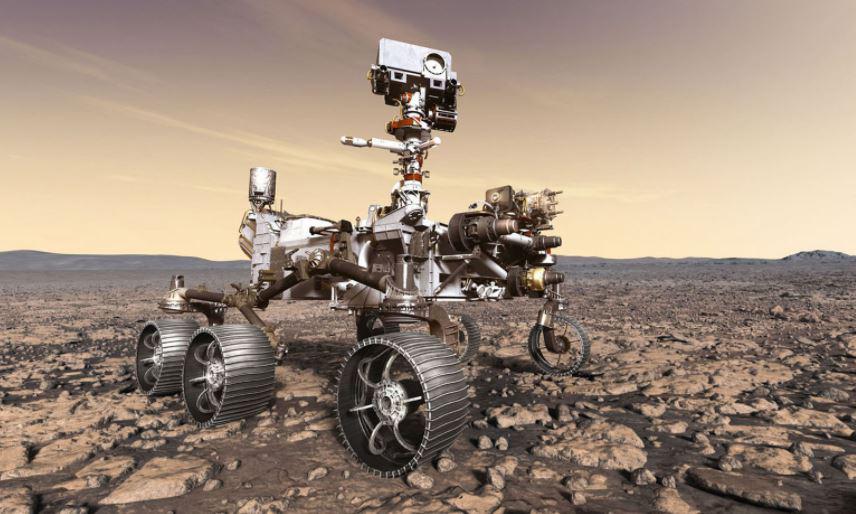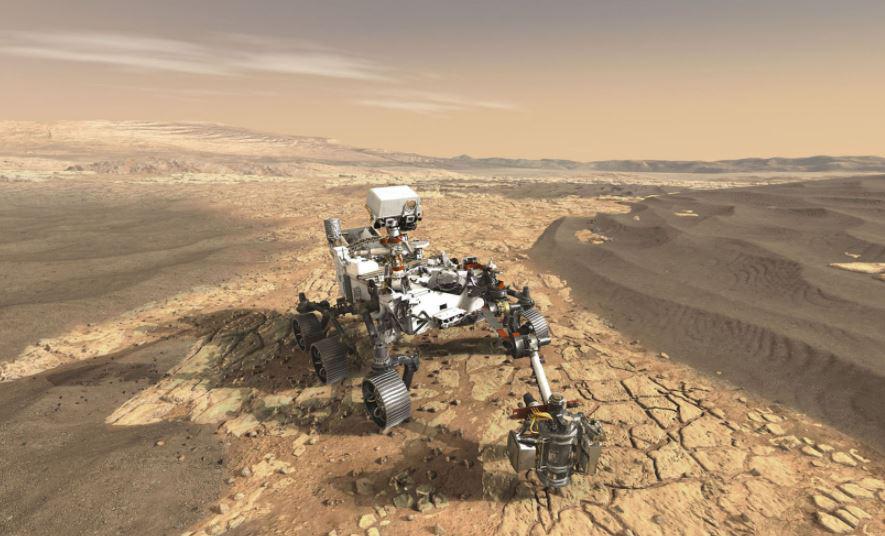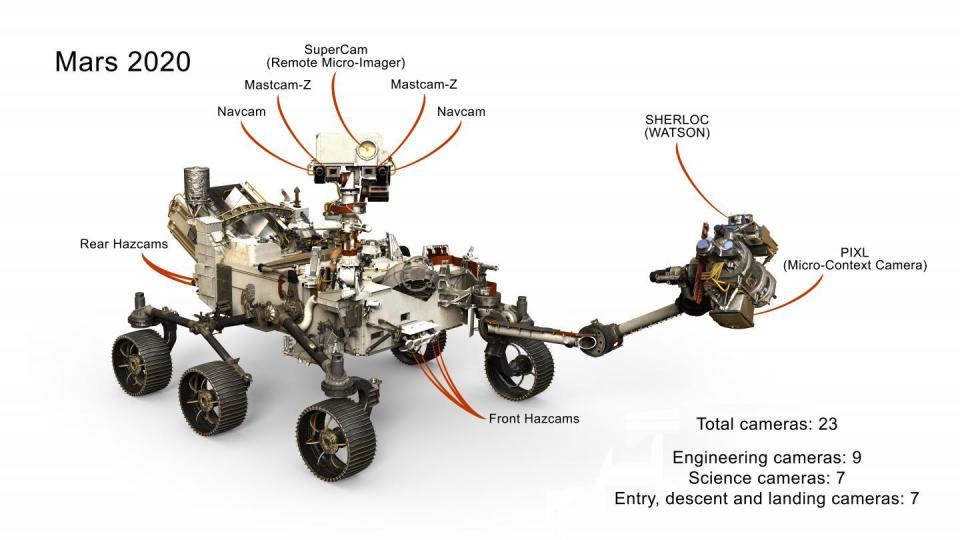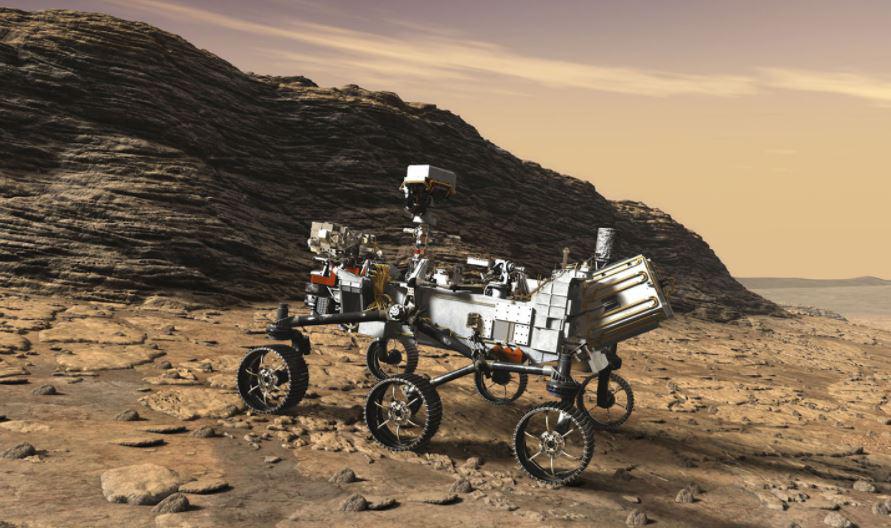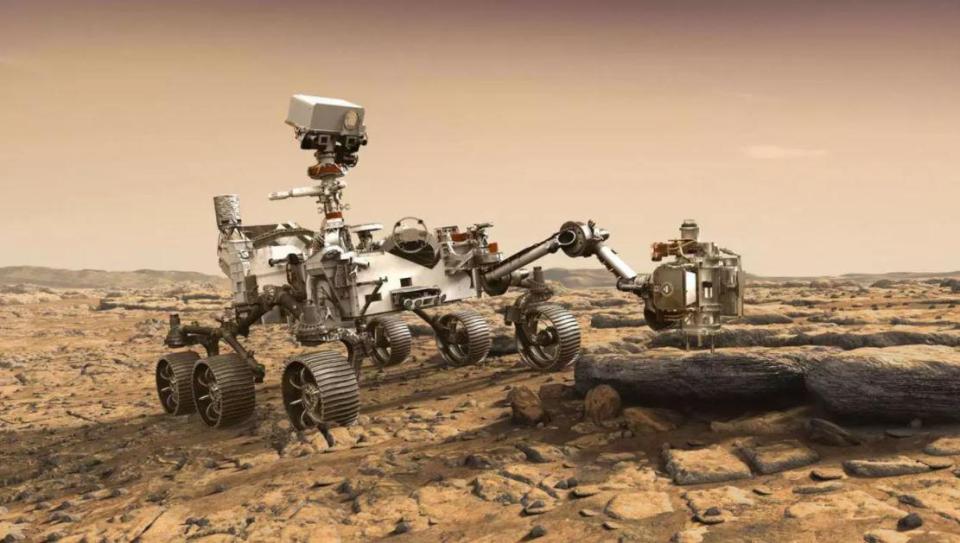Nasa unveils new £1.5billion Mars probe that could finally find life on the Red Planet
Improved rover vehicle, with a range of new sensors costing £100million to develop, will roam the surface sniffing out clues of alien life

NASA has unveiled its new improved space robot with 23 eyes to hunt for life on Mars.
The Mars 2020 Rover will blast off in a £1.5billion mission scientists hope will settle once and for all if are aliens on the Red Planet — or if they used to exist there.
It is equipped with a total of 23 cameras that will be able to zoom in on clues the size of a grain of salt.
The US space agency spent at least £100million designing seven new instruments to sniff the atmosphere and analyse samples of rock and dust from above and below the surface.
The robot is due to be launched in July or August 2020 and will arrive the following year.
It will then spend at least two years roaming the planet seeking out signs of microbial life, although the mission could be extended for years after that.
Its predecessor the Mars Curiosity Rover landed in 2012 and is still providing scientists with useful data - including the discovery earlier this year of boron, a key ingredient of life.
Ken Farley, a Mars 2020 project scientist at Nasa's Jet Propulsion Laboratory, said: "Whether life ever existed beyond Earth is one of the grand questions humans seek to answer.
"What we learn from the samples collected during this mission has the potential to address whether we're alone in the universe."
The 2020 Rover is based on the successful Curosity and Opportunity models but with all-new wheels and a range of new instruments.
Seven science cameras will provided detailed high-res images of the samples the robot collects.
Nine engineering cameras facing in all directions will allow mission controllers to steer it safely around the rocky surface.
And seven more cameras will film the craft's precarious descent and landing - the most crucial moment of the mission described as "seven minutes of hell".
The Nasa lab is also developing new landing technology that will allow the rover to visit parts of Mars deemed too risky for previous missions.
Shortlisted sites to study include areas known to have been rich in water around 3.5billion years ago.
This means they could have hosted primitive life forms such as bacteria.
The mission differs from the four previous Mars rovers in that is will actively seek evidence of past life rather than conditions that could have supported life.
Rock and soil samples will be packaged into 30 sealed containers ready for transportation back to Earth by a future spaceship.
MOST READ IN TECH
The robot will also assess the natural resources available and the potential hazards for future manned missions to the Red Planet.
Earlier this year Nasa unveiled a "Batmobile" prototype vehicle that could carry four astronauts across Mars.
The Curiosity probe also sparked an alien conspiracy after photographing a strange shiny object in the barren landscape.
We pay for your stories! Do you have a story for The Sun Online news team? Email us at tips@the-sun.co.uk or call 0207 782 4368 . We pay for videos too. Click here to upload yours.


